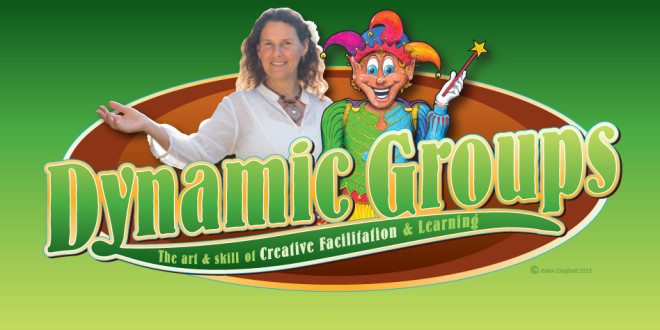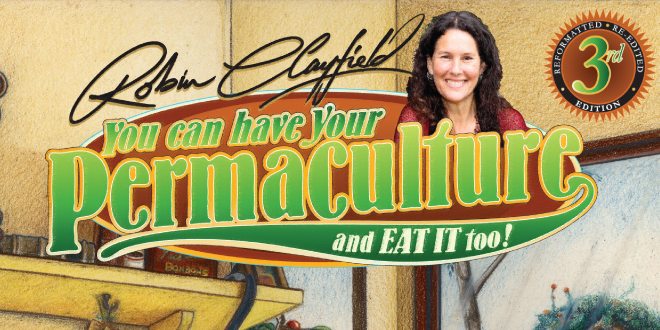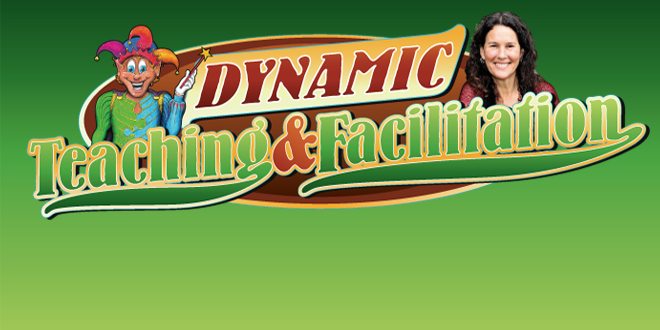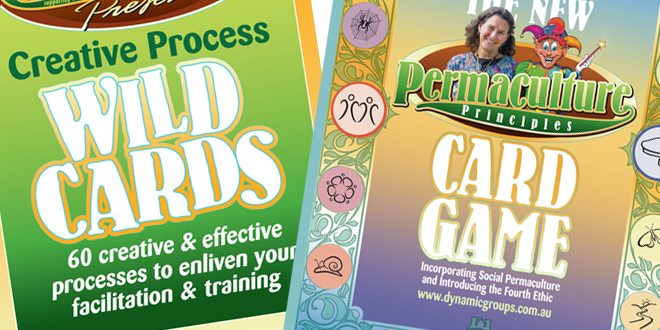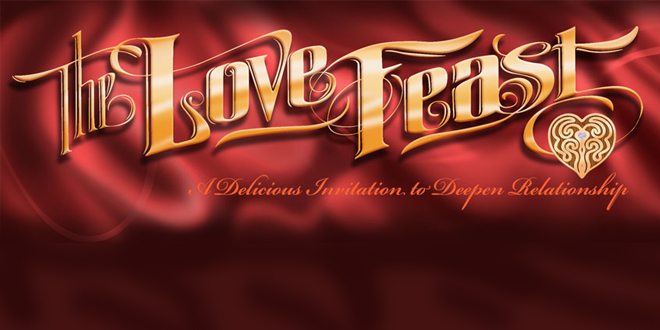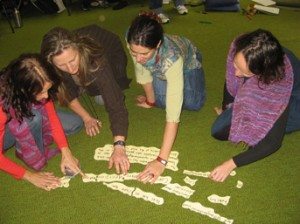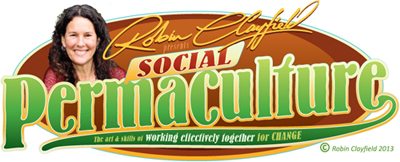Magic Happens in ‘Dynamic Groups’ and Learning Happens Easily. Why is that so?
It’s been an exciting and rewarding journey for Robin Clayfield since she first began Teaching Permaculture Creatively in 1990. She and Skye (now from Brazil) had taught a 2 week Permaculture Design Course the year before, using lecturing, small group work, demonstrations, hands-on garden and design exercises and other standard educational practises. That’s how they’d been taught through school, Uni and in their Permaculture course as students.
The course went very well, people were inspired and learnt lots, though they reported a sense of ‘information overload’. It also didn’t feel right to Skye and Robin that they were teaching Soils to Soil scientists and Building Design to Architects. Many interesting discussions followed and the next course saw ‘Needs Based Learning’ implemented and ‘Creative Facilitation’ of relevant, diverse and empowering activities, many developed especially for the people in the course. The feedback was very encouraging. The journey had begun.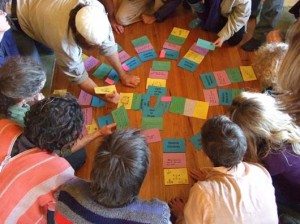
After a couple of years many requests for mentoring and teaching a special course to share their ideas and processes had been received. They had also been asked repeatedly to write down some of the processes so others could duplicate them…. The first ‘Advanced Permaculture Creative Teachers Facilitation’ Course was run and in 1994 the ‘Manual for Teaching Permaculture Creatively’ was published.
Robin now offers the ‘Dynamic Groups, Dynamic Learning’ methodology and training course to people from all industries, sector and walks of life and learning. It is an evolution of this original work, gleaning 24 years of experience, creativity, reflection, research and input from participants in hundreds of courses. She gets virtually 100% positive feedback in written and verbal evaluations and glowing testimonials. Why does this course achieve such fantastic feedback? How does it empower participants to build their confidence and skills so easily and successfully? What creates the magic? 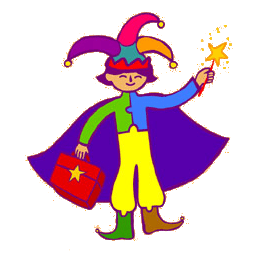
Piecing together 8 essential elements which together create a Dynamic Group, culminating in a positive and highly successful learning experience.
The Magician helps us put those pieces together.
* Be Grounded in Healthy and Appropriate Ethics and Principles, even things as simple and essential as ‘Duty of Care’. Think about what your Ethics and Principles are that may apply to groups you’re facilitating or involved with.
* Have Shared Goals and Vision as a Group. Think about the common understandings that would support your group to work together and solve problems together.
* Empowerment of the participants through working in a circle, using collaborative group experiences, processes and opportunities and having a positive learning (and participation) self image is very important.
* Use Creative Processes rather than lecturing and other non-participatory methods. Introduce activities that cater to everyone’s learning style, help keep the brain alert and that support memory retention.
* Use Interactive, Participatory Processes. Engagement of participants leads to motivation, enjoyment and increased learning plus a greater sense of achievement as everyone’s input is included and valued.
* Develop the Art and Skill of Facilitation so that learning happens easily rather than being handed down in teaching style lectures or talks. This also involves creative problem solving in groups, using interesting content and techniques, developing confidence and good planning and preparation.
* Expand your Tool Box of Creative Interactive processes for Group Dynamics, Learning Content Sessions, Meetings and Discussions, Evaluations, Completions and Celebrations. Do you have ‘IceBreakers, Energizers, Name Games and Grouping processes in your tool box? How many trust building activities do you know? Can you support a group to use both sides of their brain in a diversity of fun and easy ways?
* Develop Support Systems and Create a Supportive Learning Environment for your Participants and Yourself. Putting a system of Buddies in place so people don’t miss out on learning and encouraging Mentors are two examples. Having great food provided and adequate breaks are other examples as is offering a safe and comfortable learning and group work environment.
When all this is in place people are motivated, they are learning easily or achieving the group task and they are having fun. If the group is involved in a course or learning situation add a few more pieces to the puzzle…
* Consider Cycles and Patterns of Learning. Introduce ‘Accelerated Learning’ techniques (see http://www.acceleratedlearning.com/index.html ) and use Planning cycles and concepts like ‘Implement, Review, Improve’.
* Ensure Multi-Sensory Learning is in place. Rather than using lecturing and other mostly auditory techniques also involve Visual and Kinaesthetic ways of presenting and gathering information and learning.
* Use Inspiring Content. Make sure it’s relevant and addresses the needs of the learner or participant rather than being something they aren’t interested in or haven’t asked to learn about. Keep up to date and offer current information that’s well researched.
* Maintain a Positive Attitude. Include appropriate humour and use fun, relaxing and motivating processes and activities. Find ways to affirm the positive self image of all the participants.
Have a look at the 4 minute movie of the ‘Dynamic Groups, Dynamic Learning’ Methodology on YouTube if you’d like to watch the magician put all the pieces of the puzzle together.
‘Like’ it, Share it on FaceBook or other Social Media then tell Robin you’ve done that and receive a $50 discount on her next ‘Dynamic Groups, Dynamic Learning’ Creative Facilitators Training in Sth East Q’ld, 26th to 31st August.
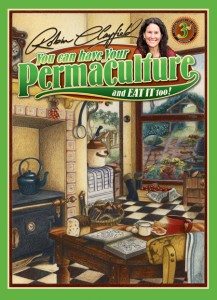 It’s had a thorough re-edit, been completely re-formatted and had a partial content upgrade bringing all the information up to date. The Index is now twice the size, there’s 6 new illustrations and the amazing Rob Clark has re-designed the cover which looks really classy with a matt finish. The book was first published 17 years ago and contains 13 years of Robin’s life. She spent over a year drawing much of the info out of her head into the manuscript. The print run all sold out and for 12 years now has only been available as a photocopied version.
It’s had a thorough re-edit, been completely re-formatted and had a partial content upgrade bringing all the information up to date. The Index is now twice the size, there’s 6 new illustrations and the amazing Rob Clark has re-designed the cover which looks really classy with a matt finish. The book was first published 17 years ago and contains 13 years of Robin’s life. She spent over a year drawing much of the info out of her head into the manuscript. The print run all sold out and for 12 years now has only been available as a photocopied version.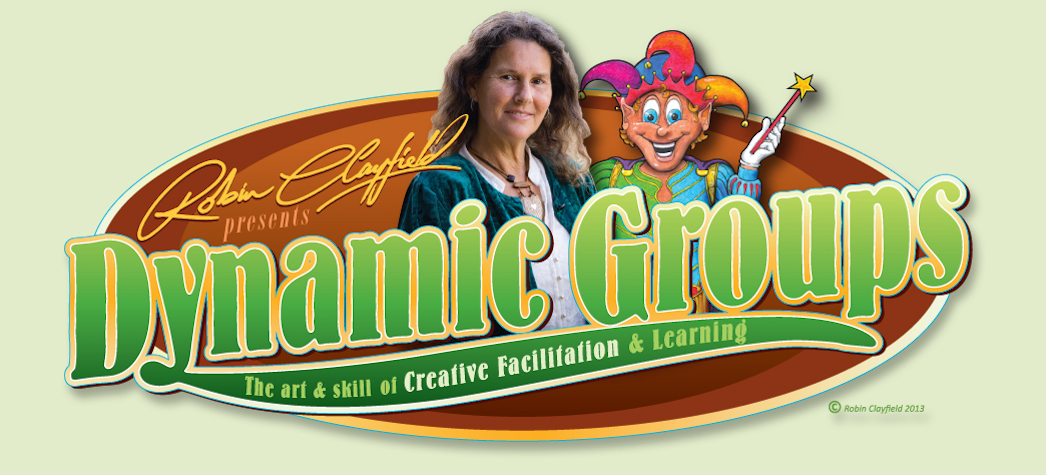 Dynamic Groups, Dynamic Learning Dynamic Courses, Books, Resources and Tours for Healthy Groups, People and Culture with Robin Clayfield
Dynamic Groups, Dynamic Learning Dynamic Courses, Books, Resources and Tours for Healthy Groups, People and Culture with Robin Clayfield
